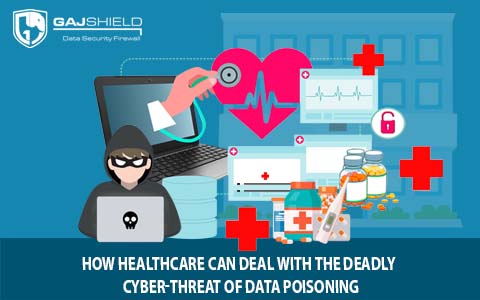How healthcare can deal with the deadly cyber-threat of data poisoning

Machine learning and AI have penetrated nearly every type of organisation today due to the efficiency and autonomy they bring to every business operation. AI makes its way into such sectors in various forms — cognitive automation, decision-making applications, predictive analytics, and several other avatars. In recent years, healthcare has seen an increasing number of AI applications, such as pervasive computing and smart hospitals. As you may know, machine learning algorithms that underpin AI-based applications are trained with thousands of datasets for functioning seamlessly. For example, if a cancer-diagnosing AI tool is being developed, the scientists and developers involved in the process use thousands of images and videos of tumours and other malignancy indicators to train the machine learning neural networks in such tools. Through reinforcement learning, AI systems can keep improving their functionality without human intervention. Unfortunately, this is where data poisoning enters the fray.
Data poisoning is a kind of adversarial attack that manipulates the training dataset to adversely affect the working of complex AI systems. As you can imagine, hospitals implementing AI cannot let poisoning affect their tools such as surgical robots and pre-emptive diagnostics tools as that will lead to avoidable life loss. Preventing such data security attacks can be managed by hospitals and other organisations using the following measures during algorithmic development:
Ensuring training data provenance
To prevent data poisoning attacks in highly confidential, vital healthcare AI applications, developers need to use both offline and online strategies. As poisoning attacks tend to be stealthy in the way they're employed by cybercriminals, a combination of offline and online measures can be used to enable your algorithms to detect such threats at an early stage. Speaking of starting early, tracking the integrity of training data — or data provenance — from the source is a positive start.
There are several approaches for optimising data provenance. One of them involves the usage of cryptography-based authentication to track data as it is captured and used for machine training. Blockchain applications are unrivalled when it comes to data protection from source to destination. As you know, blockchain encrypts data in such a way that manipulation is impossible. Such measures ensure that poisoning attacks are kept at bay during the data procurement stage from sensors and other IoT sources. Cryptographic methods are effective against model poisoning as well as software poisoning attacks — threats that drastically change software elements used in algorithmic and model training to devastating results.
Addressing data poisoning at the source dramatically improves a hospital’s capacity to maintain the integrity and useability of their AI-enabled tools and applications. This, in turn, lets them trust the functionality of such applications during real-life medical emergencies.
Data provenance and authentication is necessary to ensure optimal levels of data security during AI implementation in healthcare.
Implementing a systematic approach for model development
One of the reasons why businesses and developers may not have all bases covered when it comes to protection against data security threats such as poisoning attacks is a lack of coherence. Businesses may often rush or try to carry out several steps at once without following a proper sequential order.
To deal with poisoning attacks in a proactive and preventive way, developers need to implement an end-to-end ModelOps process to closely watch data provenance, model performance and handling of data throughout AI implementation. In healthcare, that would translate into complete transparency and accountability regarding the capture and usage of raw data for machine training. Once that is established, businesses should create a workflow for reinforcement training of algorithms. As stated earlier, machine learning models, after a while, can learn autonomously. Creating a workflow facilitates the process to contain several checks by different data security and data science experts before they can be approved for daily use in healthcare centres. The most important aspect of preventing data security attacks such as poisoning is learning from experience. Therefore, the presence of experienced data analysts, developers and scientists is necessary in the process of AI implementation in healthcare. Data scientists are an increasingly rare breed these days due to multiple reasons. As a result of this, businesses may use software engineers for AI implementation operations. However, that would be a mistake as engineers are underqualified as compared to data scientists, especially when it comes to model development. Data scientists, although expensive to get, can only prevent the threat of data poisoning.
Most importantly, hospitals need to be careful when using open-source data for algorithmic development. Open-source data is extremely susceptible to data poisoning, despite the quality and variety they bring into machine learning model development. Recent incidents of the same serve as examples for hospitals regarding the risks associated with using such freely-available data.
Using federated learning
Federated learning, also known as collaborative learning, involves the usage of several decentralised edge devices or servers for training machine learning algorithms. This increases the data security level of the entire process as it uses multiple devices and servers for the purpose, unlike traditional methods, in which entire datasets and training mechanisms take place in one server. Federated learning creates several moving targets for hackers to make the task of data poisoning difficult for them.
Using top quality data security tools and applications, like the ones provided by Gajshield, can be invaluable when it comes to creating a robust data security infrastructure for your healthcare centre. You can contact us to know more about our devices and applications that can make a difference in healthcare-based cybersecurity.
Get In Touch With Us
Subscribe to our Newsletter
2025 © GajShield Infotech (I) Pvt. Ltd. All rights reserved.
